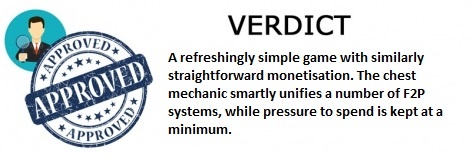Welcome back to the In-App Purchase Inspector - our regular look at free-to-play games from the consumer's perspective.
In each instalment, we consider the incentives or pressure applied to make in-app purchases, their perceived value, the expansion offered by IAPs and the overall value of the experience.
The end goal is to see whether the game makes a good enough case for us to part with our cash, or whether players are content - or engaged enough - to 'freeload'.
This time, we're taking a look at Supercell's Clash Royale, the Clash of Clans follow-up that all bar hole-dwellers will already be familiar with.
Talk of the town
Sometimes, a product or service is so polished and honed in every area that it becomes hard to approach from a point of criticism.
Clash Royale is one of them. It's just so predictably, boringly good. We know it, everyone knows it - so what is there to add?
If you're after a contrarian take on why Clash Royale isn't all that hot, you're in for a disappointment.
But if you're after a sideways, contrarian take on why Clash Royale isn't actually all that hot, you're in for a disappointment. Because, as much as I'd get a mischievous thrill from writing that, I'm also not an idiot.
Carrying over just the right amount of Clans' DNA - many of the same unit types, a sweet spot between strategy and accessibility - but paring it down to its basics for short PvP battles, Clash Royale is proof positive that real-time mutiplayer has a healthy future on mobile.
It's also very hard to stop playing, and that's the key to its success.
Good things come to those who wait
Clash Royale, from a monetisation perspective is simple - it makes you wait for things that you want now.
Unless you're willing to spend hard currency.
This, of course, is the system at the heart of nearly all successful free-to-play games, but in Clash Royale it's a little different to the 'pay to complete building' model popularised by its predecessor.
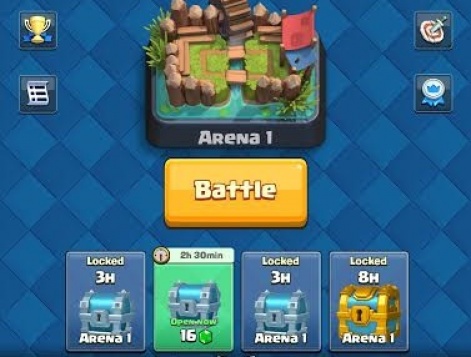
For each successful battle, you're gifted a chest. But rather than getting to open it immediately, each comes with a wait timer of up to 8 hours.
Clash Royale is unexpectedly simple in a number of ways - and monetisation is no exception.
Each chest occupies one of four slots, slowly opening one at a time. You can hurry the process along using hard currency, but any battles fought while all four slots occupied will not yield additional chests.
All bases covered
These chests are the genius of Clash Royale's monetisation, with this one mechanic effectively tying together three free-to-play systems.
The first is the aforementioned wait timer, which costs hard currency to bypass and is the main way you'll be spending Gems in Clash Royale.
Secondly, there's the gacha element - the fact that each chest contains a random selection cards and Gold - that satisfies the F2P player's well-documented love for random rewards, thus making them more compelling.
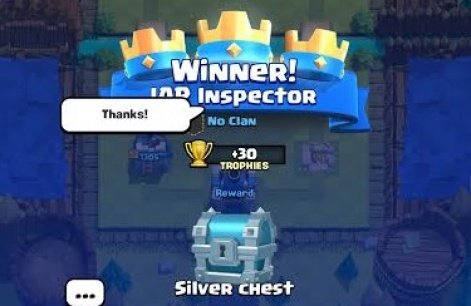
And finally, there being only a limited number of chest slots results in a situation that's tantamount, in practise, to a classic free-to-play energy system.
Faced with the prospect of playing and not receiving a chest, many will be encouraged to either spend or simply return in a few hours' time.
But the fact that it's simply the threat of losing out on rewards, rather than a hard gate, seems to me a far more thoughtful approach to the system - and one that should be taken up by others.
Royal purse
You start the game with 100 Gems (approximately $1.15), and you can buy further bundles ranging from $0.99 for 80 to $99.99 for 14,000.
You can also top up on Gold using Gems.
Gold is used to level up and buy cards, while the sole purpose of Gems is to speed up the unlocking of chests.
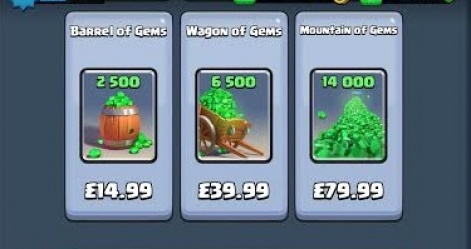
With the roles of each so clearly delineated, and neither serving a purpose that's obviously more important than the other, it does cast some uncertainty over the usual hard/soft currency divide.
Gold doesn't flow as freely as soft currency in other free-to-play games.
And indeed, the result is that Gold doesn't flow as freely as soft currency in other free-to-play games.
However, with chests being rewarded for every battle (assuming there's an available slot) and free chests available every few hours, there should be plenty of opportunity to accrue Gold and upgrade cards.
Royal flush
Summing up, Clash Royale is unexpectedly simple in a number of ways - and monetisation is no exception.
With both currencies only really serving a single purpose, and there being only one way to spend money, it's a game that really - excuse the pun - lays its cards on the table from the outset.
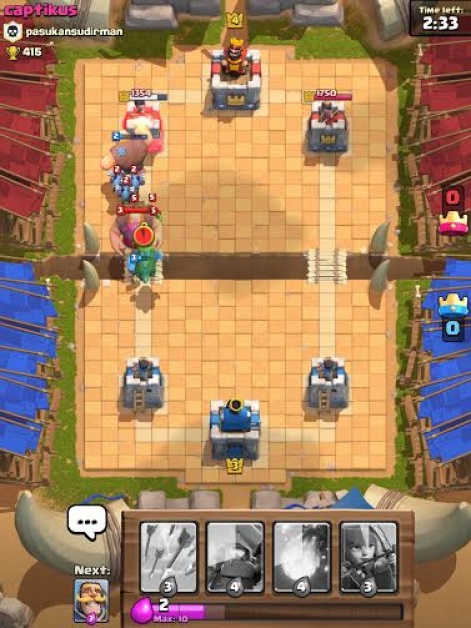
Having spent only $0.99 on 80 Gems so far, it's already easy to see how compulsive Clash Royale has the potential to be.
Using Gems to open chests has become a habit, and I now have a meagre haul of 4 remaining.
Extremely playable but with hidden depths, generous but offering compelling reasons to spend, Clash Royale finds itself in the same sweet spot between hardcore and casual as Clash of Clans.
But, for me personally, it's a lot more exciting - certainly a lot more player-friendly - and it looks like the market is going to reflect that.
